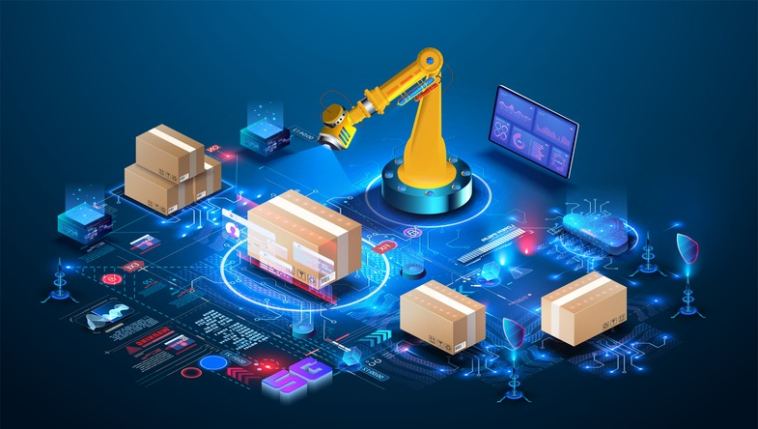- Like
- SHARE
- Digg
- Del
- Tumblr
- VKontakte
- Flattr
- Buffer
- Love This
- Save
- Odnoklassniki
- Meneame
- Blogger
- Amazon
- Yahoo Mail
- Gmail
- AOL
- Newsvine
- HackerNews
- Evernote
- MySpace
- Mail.ru
- Viadeo
- Line
- Comments
- Yummly
- SMS
- Viber
- Telegram
- JOIN
- Skype
- Facebook Messenger
- Kakao
- LiveJournal
- Yammer
- Edgar
- Fintel
- Mix
- Instapaper
- Copy Link
Logistics is an industry that has always relied heavily on technology to optimize and streamline operations. From tracking inventory to managing transportation routes, technology has played a key role in enabling logistics providers to deliver goods and services more efficiently and effectively. In recent years, advancements in technology have led to a rapid evolution in the logistics industry, with new tools and techniques emerging that promise to revolutionize the way logistics is done. In this article, we’ll take a look at some of the latest technologies being used in logistics and how they are shaping the future of the industry.
Internet of Things (IoT)
The Internet of Things refers to the network of interconnected devices that are capable of exchanging data and communicating with one another. In logistics, IoT technology is being used to track inventory, monitor shipments, and optimize transportation routes. By using sensors and other connected devices to collect data, logistics providers can gain real-time insights into the status and location of goods as they move through the supply chain. This allows them to make more informed decisions about transportation routes, inventory management, and customer service.
One of the key advantages of IoT technology in logistics is its ability to provide real-time visibility into the supply chain. By using sensors and other connected devices to track the movement of goods, logistics providers can gain a more complete picture of the supply chain, from the point of origin to the final destination. This can help them identify potential bottlenecks, optimize transportation routes, and ensure that goods are delivered on time and in good condition.
Artificial Intelligence (AI)
Artificial intelligence refers to the ability of machines to learn and adapt based on data inputs. In logistics, AI is being used to optimize transportation routes, predict demand for goods and services, and automate repetitive tasks. By using machine learning algorithms to analyze data from a variety of sources, logistics providers can gain insights into customer behavior, transportation patterns, and other factors that affect the supply chain.
One of the key advantages of AI technology in logistics is its ability to automate repetitive tasks and reduce the need for human intervention. Take moving home as a simple example, a customer’s inventory can be used as a data set collected for machine learning and compounded after thousands of moves and eventually machine learning would have gathered enough data that it can precisely predict to the exact cubic meterage, exact route to take and if linked to a network of removalists what exact company has the available truck size for any type of move in real-time and all without any human involvement. By using machine learning algorithms to analyze data and make predictions, logistics providers can reduce the time and resources required to manage the supply chain. This can lead to faster delivery times, lower costs, and a more efficient and effective logistics operation overall.
Blockchain
Blockchain is a distributed ledger technology that enables secure and transparent transactions between parties. In logistics, blockchain is being used to track the movement of goods, ensure the integrity of the supply chain, and improve transparency and accountability. By using blockchain to record transactions and track the movement of goods, logistics providers can create a tamper-proof record of the supply chain, which can be used to improve trust and reduce the risk of fraud.
One of the key advantages of blockchain technology in logistics is its ability to create a transparent and secure record of transactions. By using blockchain to record data and track the movement of goods, logistics providers such as interstate car transport carriers can create an immutable record that is accessible to all parties involved in the supply chain. This can help to improve transparency and accountability, reduce the risk of fraud, and increase trust between parties.
Autonomous Vehicles
Autonomous vehicles refer to vehicles that are capable of driving themselves without human intervention. In logistics, autonomous vehicles are being used to transport goods and services more efficiently and effectively. By using sensors, cameras, and other connected devices to navigate roads and highways, autonomous vehicles can deliver goods faster, more safely, and with less need for human intervention.
One of the key advantages of autonomous vehicles in logistics is their ability to reduce the cost and time required for transportation. By removing the need for human drivers, logistics providers can reduce labor costs and improve the efficiency of transportation routes. Additionally, autonomous vehicles can operate around the clock, which can further reduce the time required for transportation and increase the speed of delivery.

![what-is-a-cro-test?-[+-the-5-steps-to-perform-them-yourself]](https://everythingflex.com/wp-content/uploads/2023/03/8999-what-is-a-cro-test-the-5-steps-to-perform-them-yourself-150x150.jpg-23keepprotocol)
